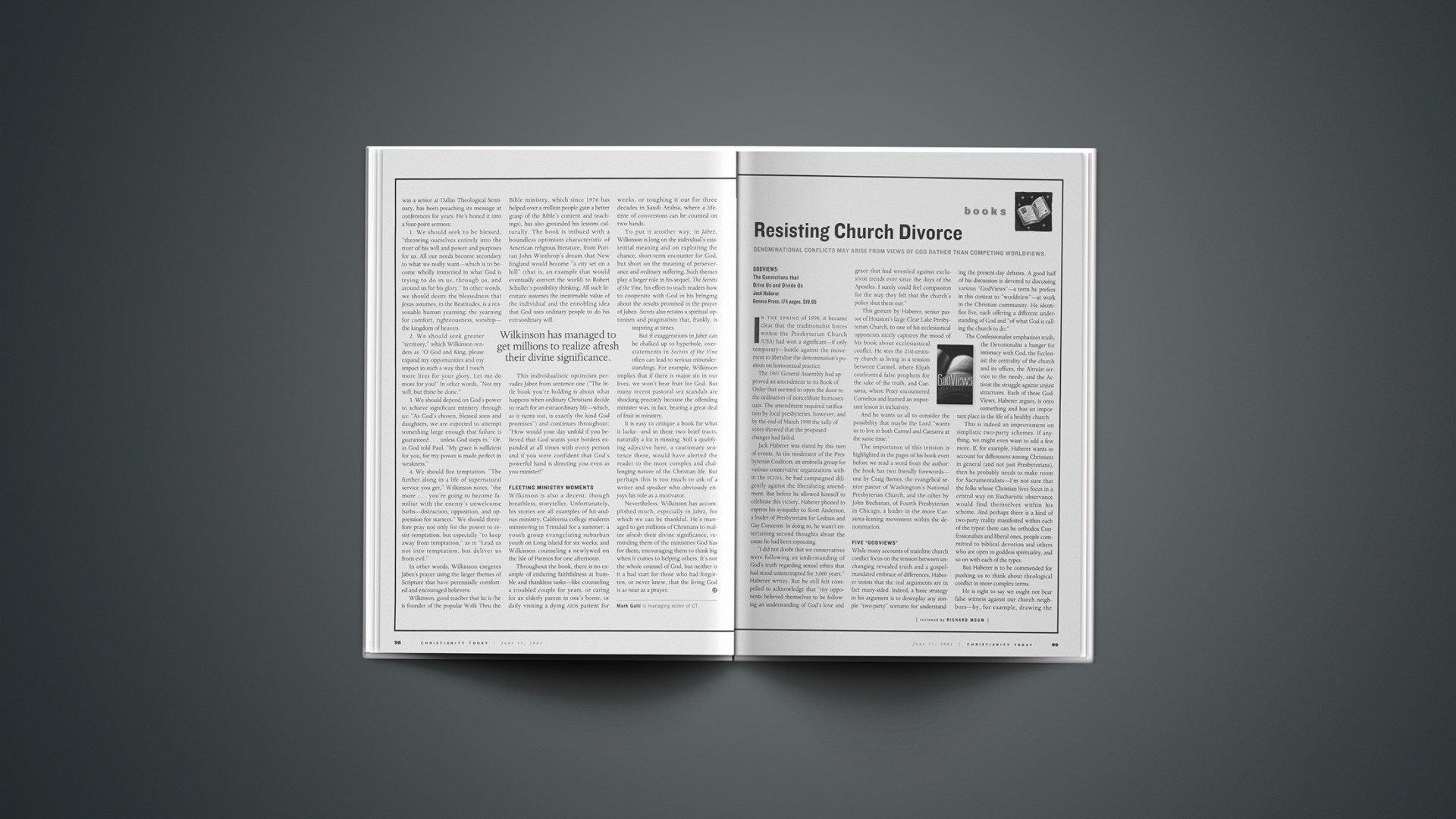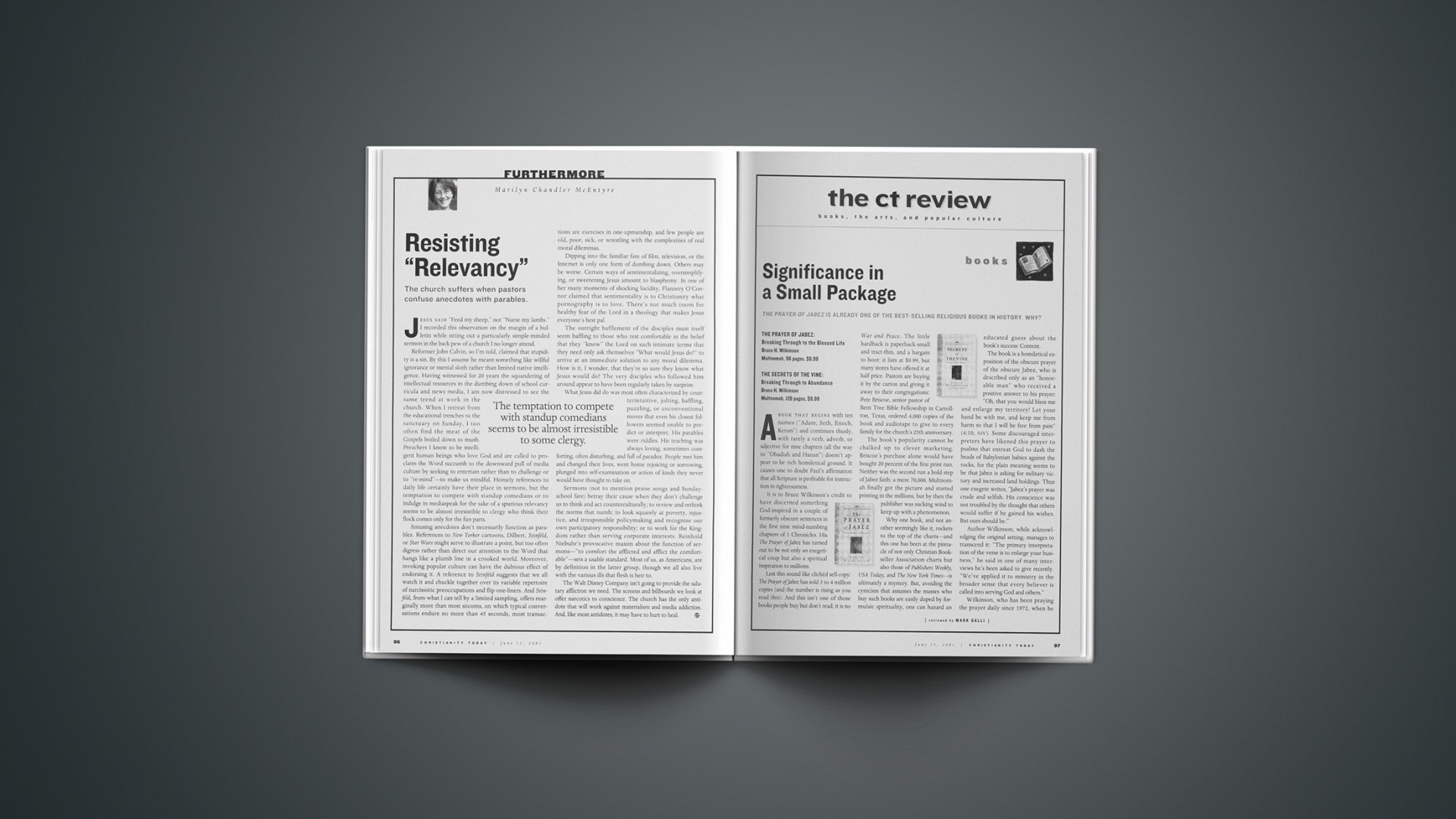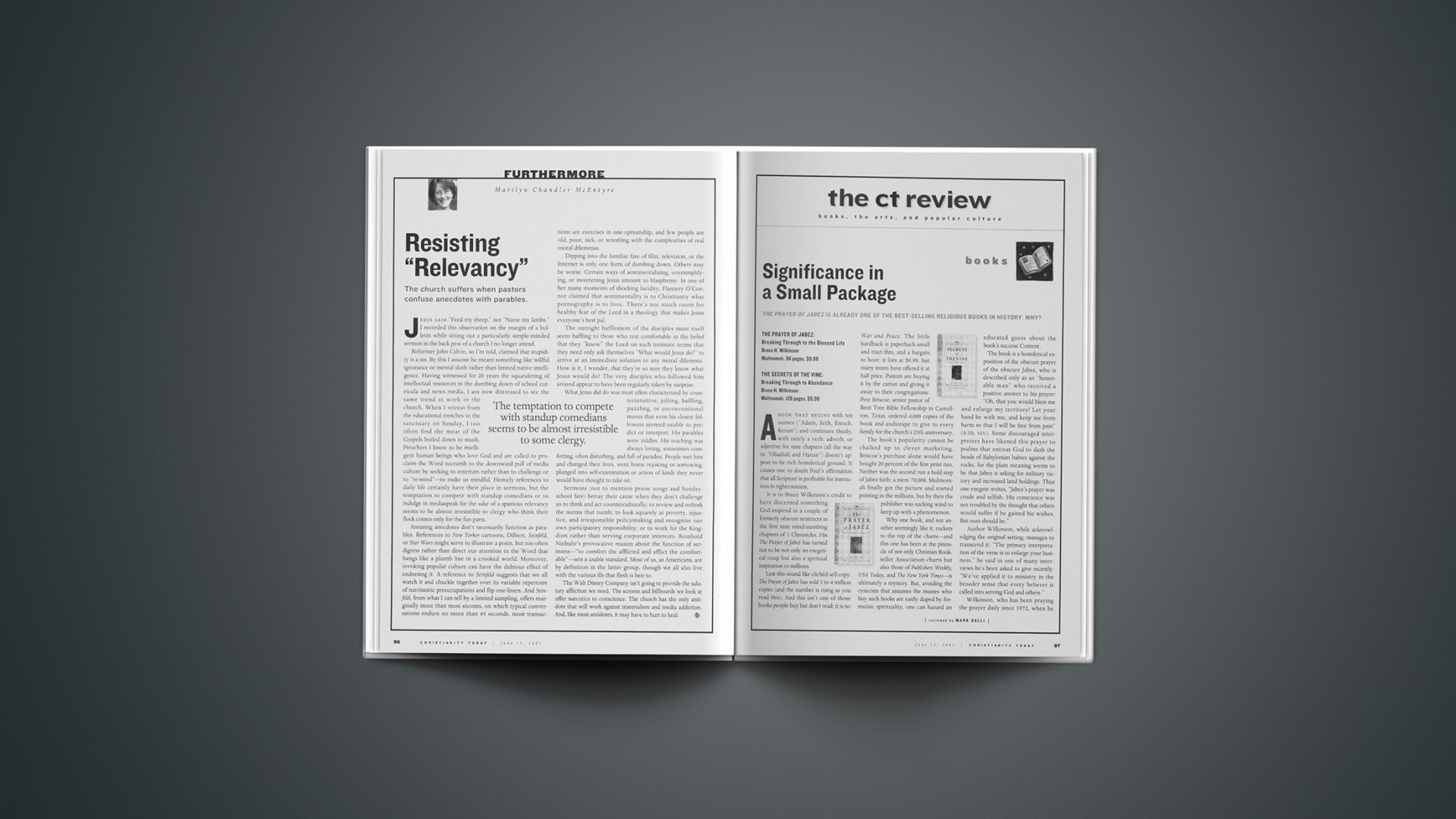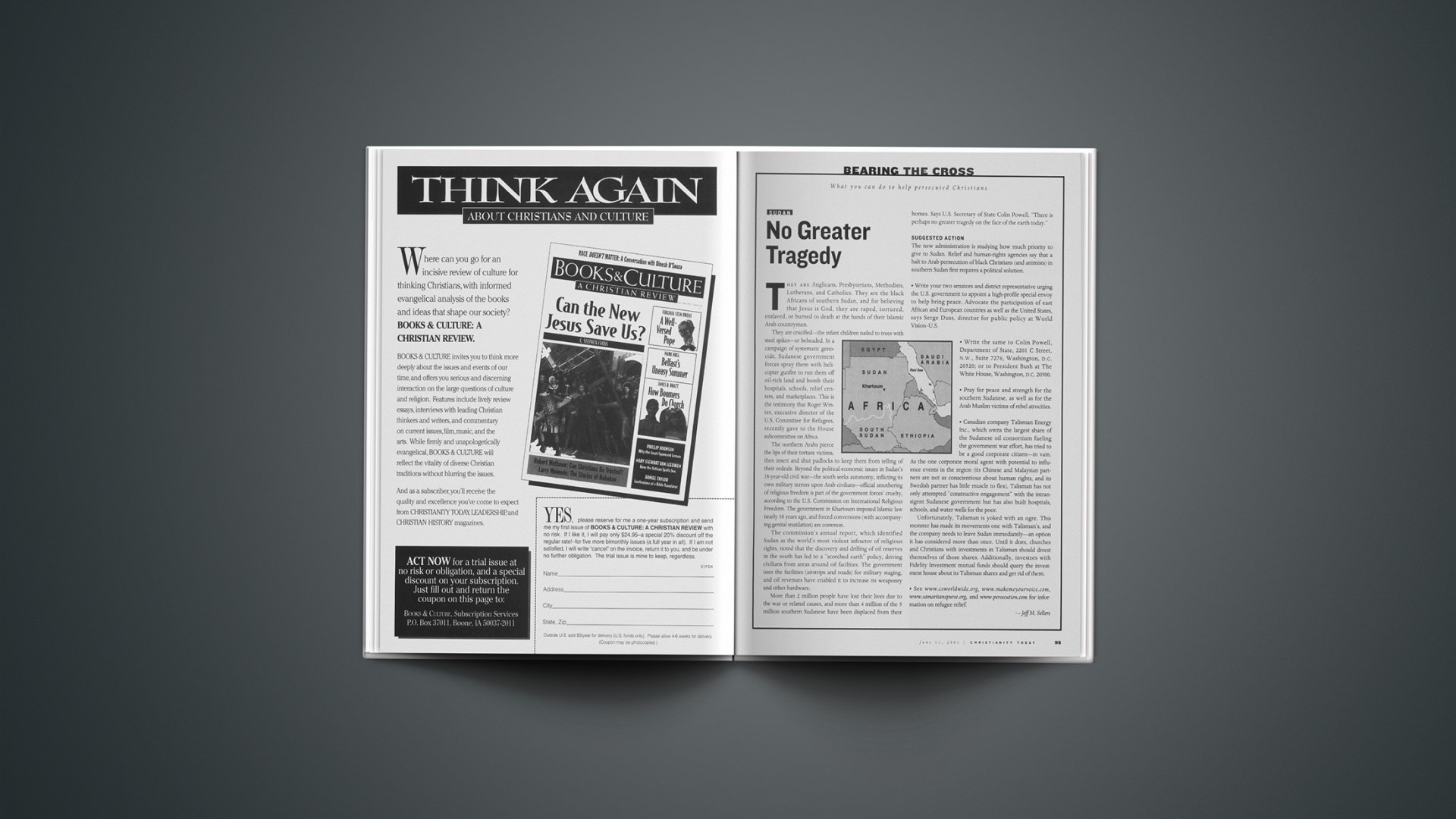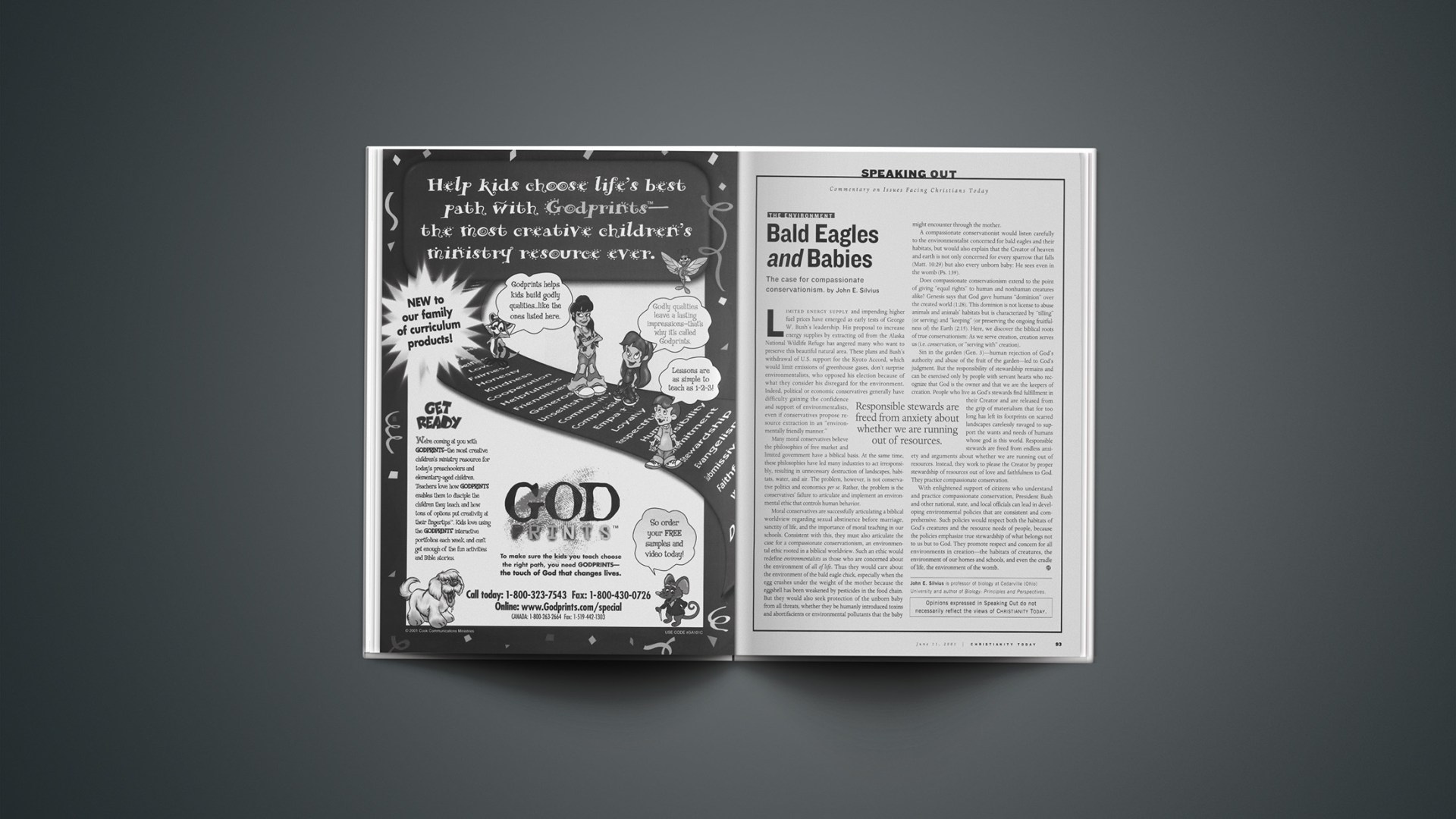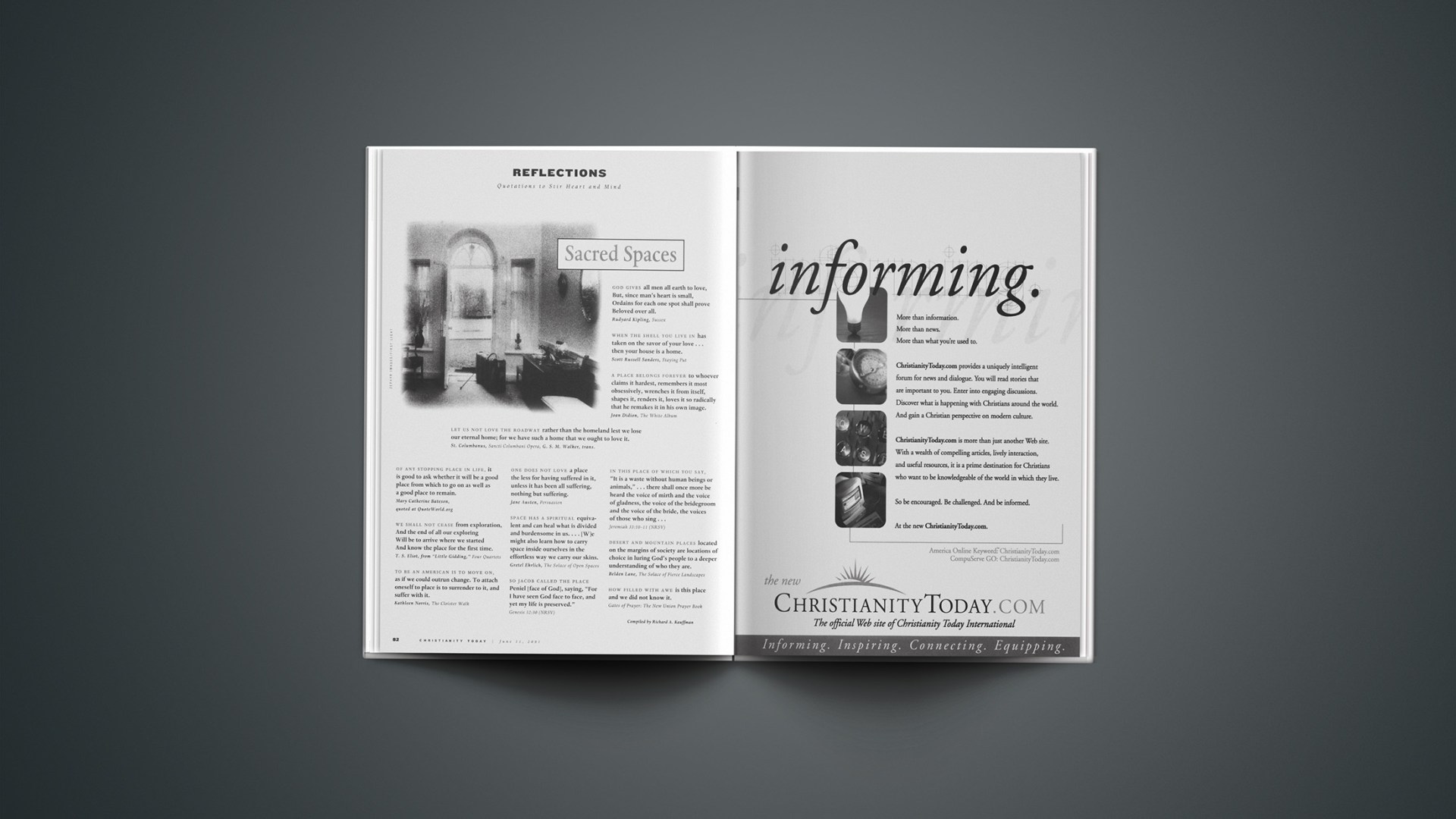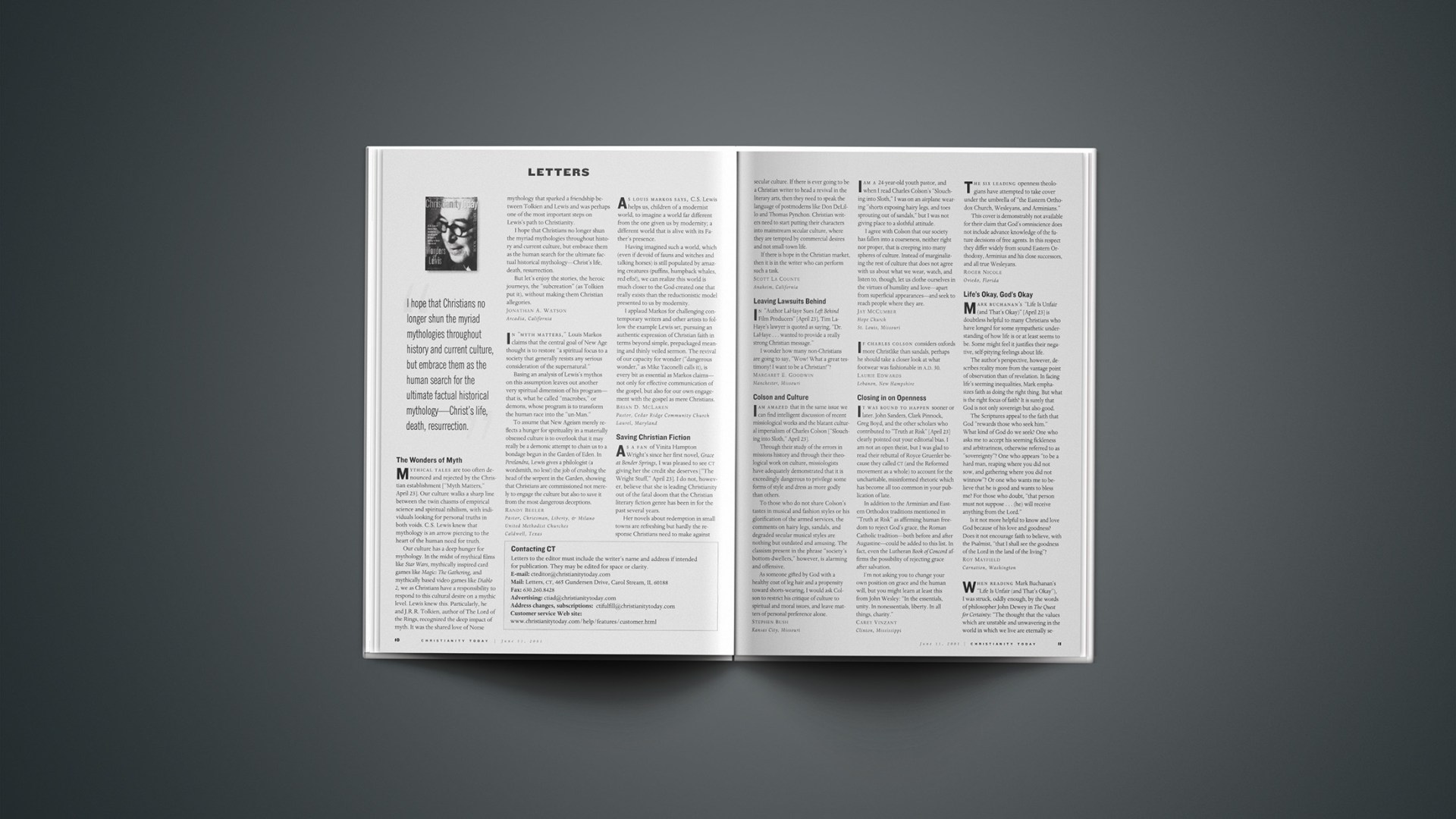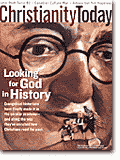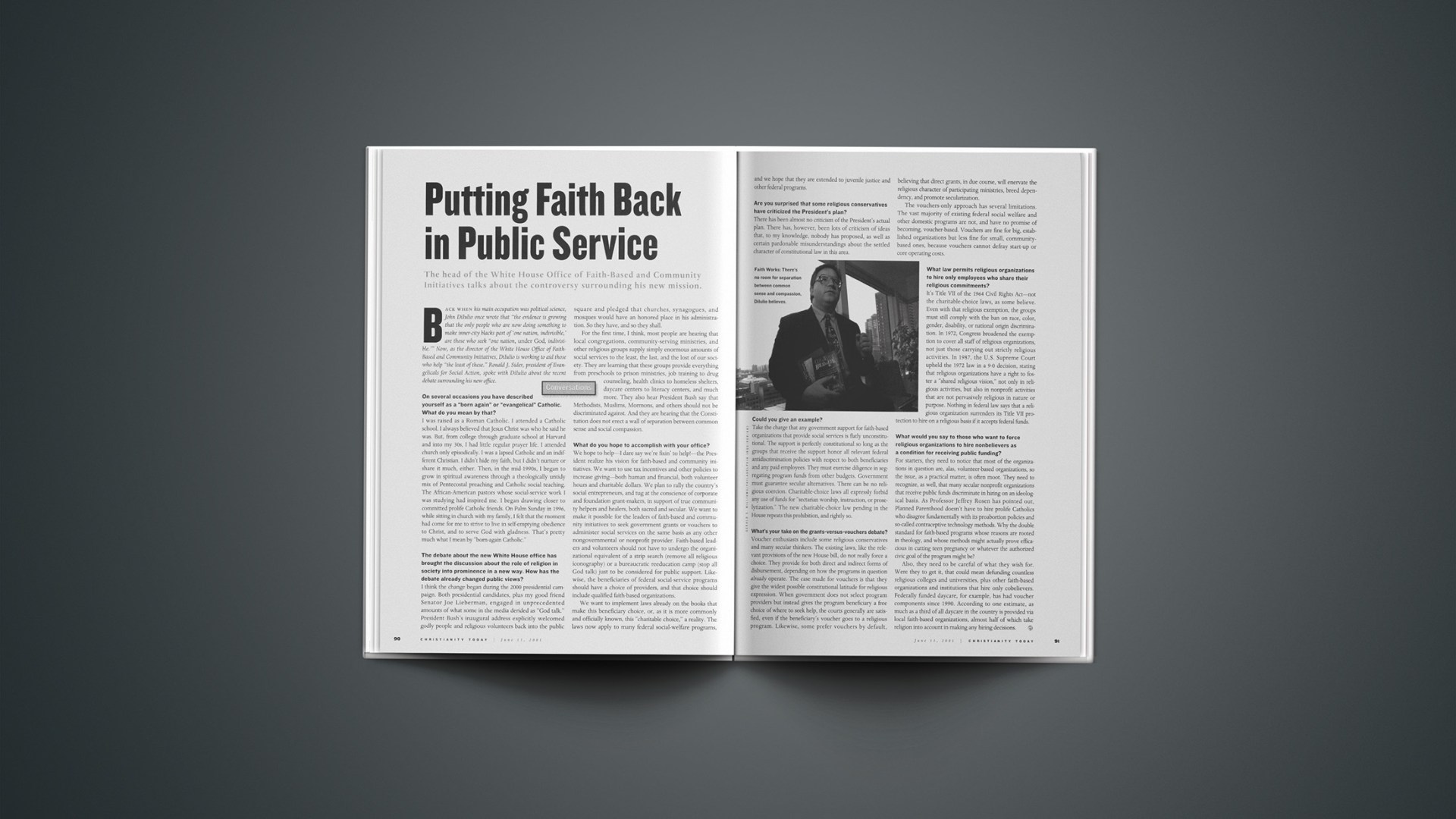GODVIEWS: The Convictions that Drive Us and Divide Us
Jack Haberer
Geneva Press, 174 pages, $19.95
In the spring of 1998, it became clear that the traditionalist forces within the Presbyterian Church (USA) had won a significant—if only temporary—battle against the movement to liberalize the denomination’s position on homosexual practice.
The 1997 General Assembly had approved an amendment to its Book of Order that seemed to open the door to the ordination of noncelibate homosexuals. The amendment required ratification by local presbyteries, however, and by the end of March 1998 the tally of votes showed that the proposed changes had failed.
Jack Haberer was elated by this turn of events. As the moderator of the Presbyterian Coalition, an umbrella group for various conservative organizations within the PCUSA, he had campaigned diligently against the liberalizing amendment. But before he allowed himself to celebrate this victory, Haberer phoned to express his sympathy to Scott Anderson, a leader of Presbyterians for Lesbian and Gay Concerns. In doing so, he wasn’t entertaining second thoughts about the cause he had been espousing.
“I did not doubt that we conservatives were following an understanding of God’s truth regarding sexual ethics that had stood uninterrupted for 3,000 years,” Haberer writes. But he still felt compelled to acknowledge that “my opponents believed themselves to be following an understanding of God’s love and grace that had wrestled against exclusivist trends ever since the days of the Apostles. I surely could feel compassion for the way they felt that the church’s policy shut them out.”
This gesture by Haberer, senior pastor of Houston’s large Clear Lake Presbyterian Church, to one of his ecclesiastical opponents nicely captures the mood of his book about ecclesiastical conflict. He sees the 21st-century church as living in a tension between Carmel, where Elijah confronted false prophets for the sake of the truth, and Caesarea, where Peter encountered Cornelius and learned an important lesson in inclusivity.
And he wants us all to consider the possibility that maybe the Lord “wants us to live in both Carmel and Caesarea at the same time.”
The importance of this tension is highlighted in the pages of his book even before we read a word from the author: the book has two friendly forewords—one by Craig Barnes, the evangelical senior pastor of Washington’s National Presbyterian Church, and the other by John Buchanan, of Fourth Presbyterian in Chicago, a leader in the more Caesarea-leaning movement within the denomination.
Five “Godviews”
While many accounts of mainline church conflict focus on the tension between unchanging revealed truth and a gospel-mandated embrace of differences, Haberer insists that the real arguments are in fact many-sided. Indeed, a basic strategy in his argument is to downplay any simple “two-party” scenario for understanding the present-day debates. A good half of his discussion is devoted to discussing various “GodViews”—a term he prefers in this context to “worldview”—at work in the Christian community. He identifies five, each offering a different understanding of God and “of what God is calling the church to do.”The Confessionalist emphasizes truth, the Devotionalist a hunger for intimacy with God, the Ecclesiast the centrality of the church and its offices, the Altruist service to the needy, and the Activist the struggle against unjust structures. Each of these GodViews, Haberer argues, is onto something and has an important place in the life of a healthy church.
This is indeed an improvement on simplistic two-party schemes. If anything, we might even want to add a few more. If, for example, Haberer wants to account for differences among Christians in general (and not just Presbyterians), then he probably needs to make room for Sacramentalists—I’m not sure that the folks whose Christian lives focus in a central way on Eucharistic observance would find themselves within his scheme. And perhaps there is a kind of two-party reality manifested within each of the types: there can be orthodox Confessionalists and liberal ones, people committed to biblical devotion and others who are open to goddess spirituality, and so on with each of the types.
But Haberer is to be commended for pushing us to think about theological conflict in more complex terms.
He is right to say we ought not bear false witness against our church neighbors—by, for example, drawing the battle lines in ways that misrepresent our opponents’ motives and convictions.
Nor can we fault Haberer for insisting that dividing denominations often does more harm than good. At one point, he observes that ecclesiastical splits are a lot like the breakup of a marriage. In most cases the so-called “amicable divorce” is a sham. A couple may set out to dissolve their marriage in a friendly manner, but typically things soon turn ugly.
Can we hope for anything better, asks Haberer, when a breakup is “planned and executed for a whole denomination of more than 11,000 congregations and 2 million members”?
The marriage analogy is one that evangelicals especially ought to ponder, since we have typically been tougher on people who break their marital vows than we have on those who dissolve churchly covenants.
Still, a daunting practical challenge must be faced. What do we do if most of our denominational agencies are committed to a cultural agenda that is antithetical to evangelical sensitivities? Suppose the denomination’s educational materials, for example, promote sexual values that violate our deepest convictions? What if local judicatories discriminate against candidates for ministry who unashamedly profess that salvation is possible only through the atoning sacrifice of Jesus Christ? What recourse do we have when we cannot in good conscience support the programs that our denominations offer us under bizarre definitions of “evangelism” or “missions”?
Some mainline evangelicals I talk to regularly worry that such issues are becoming so troublesome that they have no choice but to consider an ecclesiastical divorce. Others simply stay in their denominations while ignoring as much as possible the controversies that are raging in the official assemblies, and maintain their connectedness to the larger body of Christ by associating with parachurch organizations and ad-hoc gatherings of like-minded clergy and laity from other denominations (and “nondenominations”).
Yet these solutions surely fall short of the robust commitment to church unity that Haberer advocates. Indeed, following through on his own analogy, such folks seem to be simply biding their time in what they see as bad ecclesiastical marriages. Perhaps as a next step, Haberer needs to write a practical guidebook for evangelicals who want—or at least ought to want—more fulfillment from their “marital” relations.
For all of that, though, we evangelicals need to confess that theological clarity about churchly “connectedness” has not been one of our strong points. Nor is our record of dealing with conflict—with nonevangelicals or even within the evangelical community—anything to boast about. And while Haberer’s book may not answer all the complex questions about how to improve our ecclesiastical relationships, it is still an excellent practical handbook to what we might think of as ecclesiastical piety.
It is the kind of book that every evangelical who is struggling with ecclesiastical conflict should consider taking along on a personal retreat, to use as a guide to spiritual self-examination.
Richard Mouw is president of Fuller Theological Seminary.
Copyright © 2001 Christianity Today. Click for reprint information.
Related Elsewhere
Godviews can be ordered at Amazon.com and other book retailers.Clear Lake Presbyterian Church‘s site has more information about its senior pastor—and the author of GodViews—Jack Haberer.
Haberer once led The Presbyterian Coalition.
See today’s Weblog for a wrap-up of the PCUSA’s General Assembly in Louisville, Kentucky, which focused on the uniqueness of Jesus and the ordination of homosexuals. (PresbyWeb also has links to dozens upon dozens of stories about the General Assembly.)
More on denominational battles is available in our church life area, as well as articles in our theology and sexuality areas.

